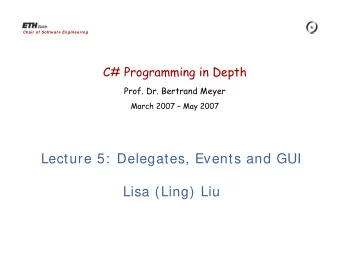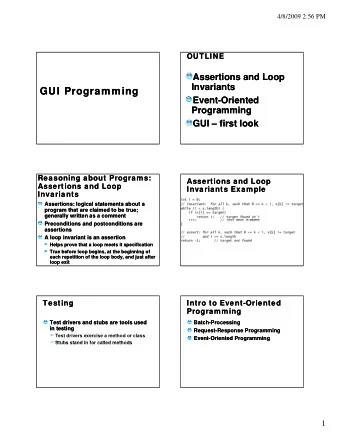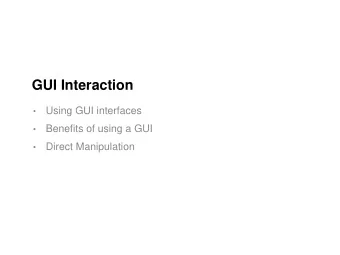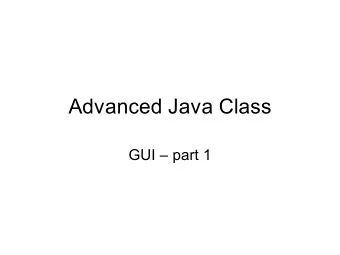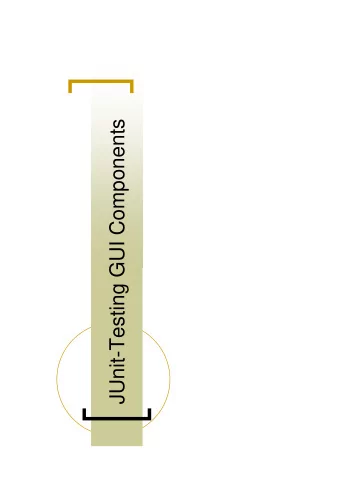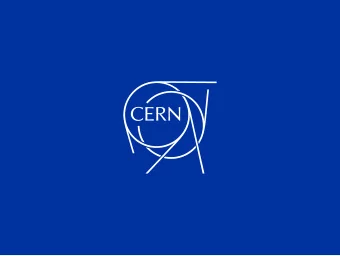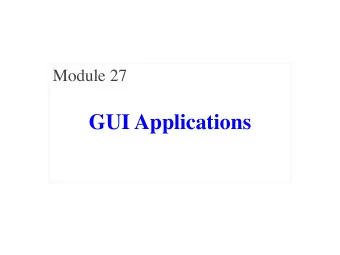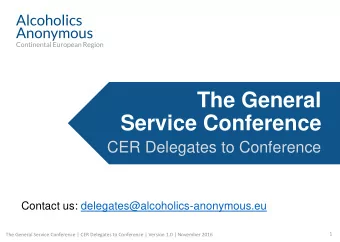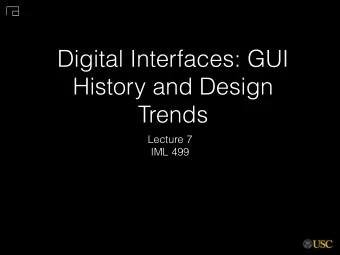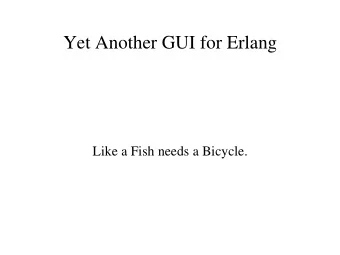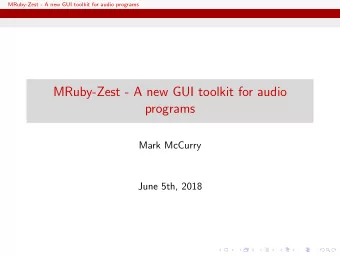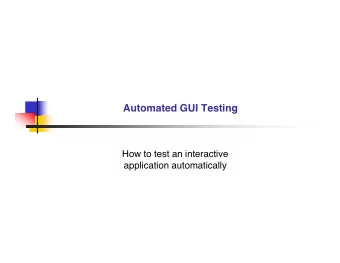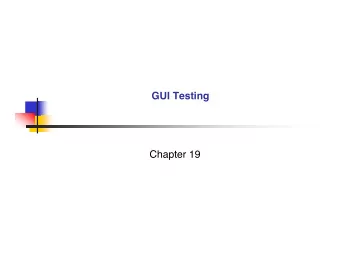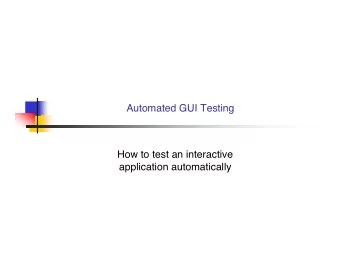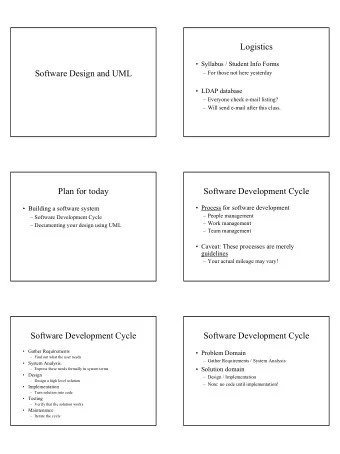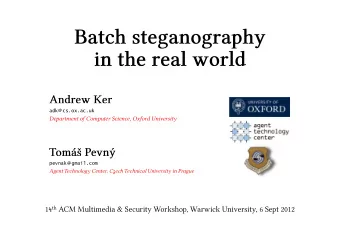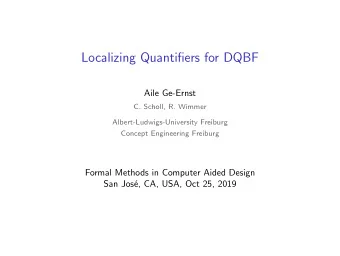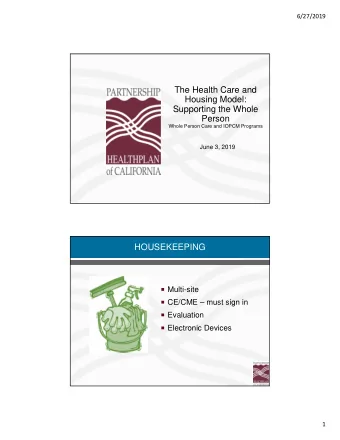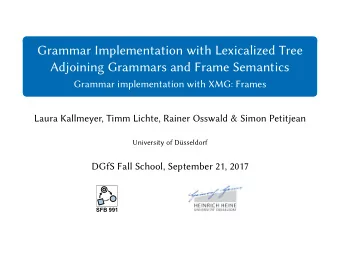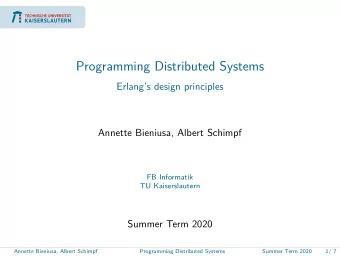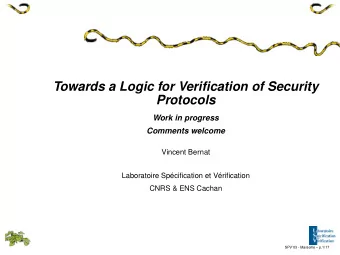
Events and Delegates & Gui Programming January 23, 2008 Events - PowerPoint PPT Presentation
Events and Delegates & Gui Programming January 23, 2008 Events and Delegates 1 Gui Programing 2 1/23 Event Driven Programming Imagine a game with many actors responding to their environment. 2/23 Event Driven Programming Imagine a
Events and Delegates & Gui Programming January 23, 2008
Events and Delegates 1 Gui Programing 2 1/23
Event Driven Programming Imagine a game with many actors responding to their environment. 2/23
Event Driven Programming Imagine a game with many actors responding to their environment. Polling: Every so often, each actor looks at state of environment and takes appropriate actions. 2/23
Event Driven Programming Imagine a game with many actors responding to their environment. Polling: Every so often, each actor looks at state of environment and takes appropriate actions. Events: Wake up actors when something interesting happens. 2/23
We can code events using basic C#. . . public i n t e r f a c e IEventHandler { void DoIt ( ) ; } public class SesameStreet { void RegisterForCookie ( IEventHandler h ) { . . . } void CookieEventHappens ( ) { . . . } } public class CookieMonster { class CookieEatingClass : IEventHandler { void DoIt ( ) { WriteLine ( "Nom, Nom" ) ; } } CookieMonster ( SesameStreet s ) { s . RegisterForCookie (new CookieEatingClass ( ) ) ; } } 3/23
. . . but the encoding is flawed. Problems: A nested class is needed to define each event handler. Handler has not easy access instance and local variables. Resulting code is hard to read. 4/23
Delegates: methods as data. / / Declare a new delegate type . A binOp i s a / / method that takes two i n t s and returns an i n t . public delegate i n t binOp ( i n t x , i n t y ) ; public class Demo{ s t a t i c void Main ( s t r i n g [ ] args ) { / / m i s stores a binOp binOp m = Math . Min ; / / Calling m c a l l s the stored method , / / Math . Min . Output i s " 3 " . Console . WriteLine (m( 3 , 4 ) ) ; } } 5/23
Multicasting: A delegate can call several methods. (I) public delegate void P r i n t e r ( s t r i n g s ) ; public class PromptPrinter { p r i v at e s t r i n g prompt ; public PromptPrinter ( s t r i n g p ) { prompt=p ; } public void P r i n t ( s t r i n g s ) { Console . WriteLine ( prompt + s ) ; } } 6/23
Multicasting: A delegate can call several methods. (II) public class Demo{ s t a t i c P r i n t e r myPrinter ; s t a t i c void Main ( s t r i n g [ ] args ) { PromptPrinter p1 = new PromptPrinter ( ">>" ) ; PromptPrinter p2 = new PromptPrinter ( "#" ) ; myPrinter = p1 . P r i n t ; myPrinter += p2 . P r i n t ; myPrinter ( " foo " ) ; } } Output is "»foo" "#foo" Multicasting only makes sense for methods returning void. Operators =, +, -, +=, -= attach and detach delegates. 7/23
Anonymous delegates further streamline event code. public delegate i n t binOp ( i n t x , i n t y ) ; . . . / / C# 2.0 "Anonymous Delegate " Syntax : binOp sum = delegate ( i n t x , i n t y ) { return x + y ; } ; / / C# 3.0 "Lambda" Syntax / / ( plus type inference ) : binOp sum = ( ( x , y ) => x + y ) ; 8/23
How does it work? C# compile translates delegate types into classes which inherit from System.MulticastDelegate. Delegate values are compiled to class instances. For multicasting, + operator builds a list of delegates objects. 9/23
Events are delegates with standard method signatures. public delegate HandlerType ( object c a l l e r , EventArgs e ) ; class foo { public event HandlerType myEvent } Member eventName can be updated (+, +=, . . . ) as public. But, eventName can only be invoked by foo. By convention, foo should pass itself as caller. 10/23
Updating the cookie example (I) class CookieEventArgs : System . EventArgs { } ; class SesameStreet { delegate void CookieDelegate ( object o , CookieEventArgs c ) ; event CookieDelegate CookieEvent ; void DoCookie ( ) { CookieEvent ( this , new CookieEventArgs ( ) ) ; } } 11/23
Updating the cookie example (II) class CookieMonster { CookieMonster ( SesameStreet s ) { s . CookieEvent += ( ( object o , CookieEventArgs c ) => System . Console . WriteLine ( "Nom, Nom" ) ) ; } } 12/23
Updating the cookie example (III) public class Runner { s t a t i c void Main ( s t r i n g [ ] args ) { SesameStreet ss = new SesameStreet ( ) ; CookieMonster cm = new CookieMonster ( ss ) ; ss . DoCookie ( ) ; ss . DoCookie ( ) ; ss . DoCookie ( ) ; } } / ∗ Output : Nom, Nom Nom, Nom Nom, Nom ∗ / 13/23
Events and Delegates 1 Gui Programing 2 14/23
Gui programs are not special. Execution starts at Main Events model used to get inputs from controls Fancy designers just a convenient way to generate code (One caveat coming up) 15/23
A Simple Gui Program (I) using System . Windows . Forms ; / / Simplest GUI program . / / Compile as a "Windows Application " class Program { s t a t i c void Main ( s t r i n g [ ] args ) { MessageBox .Show( " Hello Gui Programming " ) ; } } 16/23
A Simple Gui Program (II) 17/23
A Simple Gui Program (III) The caveat: I had to change the project’s output type to “Windows Application”. This stops the program from popping up a command prompt. 18/23
Event Driven Gui Programming All screen elements are represent by objects. Interesting user activities trigger events. Handling these event lets your program update it’s state. Windows are instances of System.Windows.Forms.Form Buttons are instances of System.Windows.Controls.Button 19/23
Finally: A Gui That Does Something! (I) s t a t i c void Main ( ) { RandColorPicker cp = new RandColorPicker ( ) ; Form theForm = new Form ( ) ; theForm . Text = "My Window" ; / / Event handlers here theForm . MouseClick += ( ( x , y ) => theForm . BackColor = cp . GetRand ( ) ) ; theForm . MouseEnter += ( delegate ( object x , EventArgs y ) { theForm . BackColor = cp . GetRand ( ) ; } ) ; theForm . ShowDialog ( ) ; } 20/23
Finally: A Gui That Does Something! (II) 21/23
Finally: A Gui That Does Something! (II) 21/23
Finally: A Gui That Does Something! (II) 21/23
Visual Studio’s form designer helps build Guis. Drag and drop controls onto forms. Designer can set properties of controls. Designer can automatically generate stub code for event handlers. 22/23
Homework Problem Set 1: Due before class today(!) Problem Set 2 Will be posted by the end of the day tomorrow PS 2 will be with partners. Email me by Friday. If you have a partner, tell me who. If you don’t, let me know and I’ll pair people up. There may need to be one group of three. Due February 6. Start early. 23/23
Recommend
More recommend
Explore More Topics
Stay informed with curated content and fresh updates.
